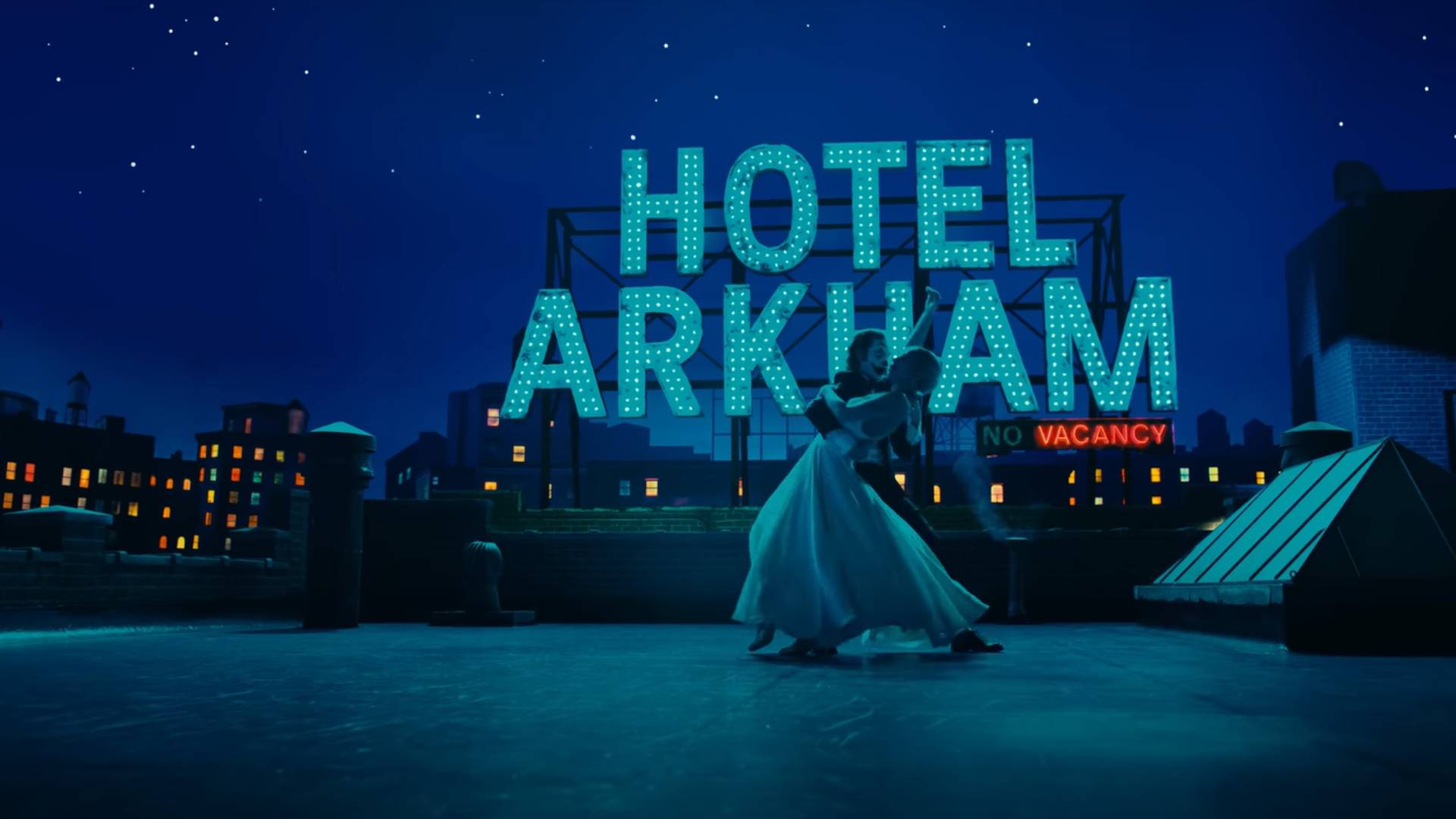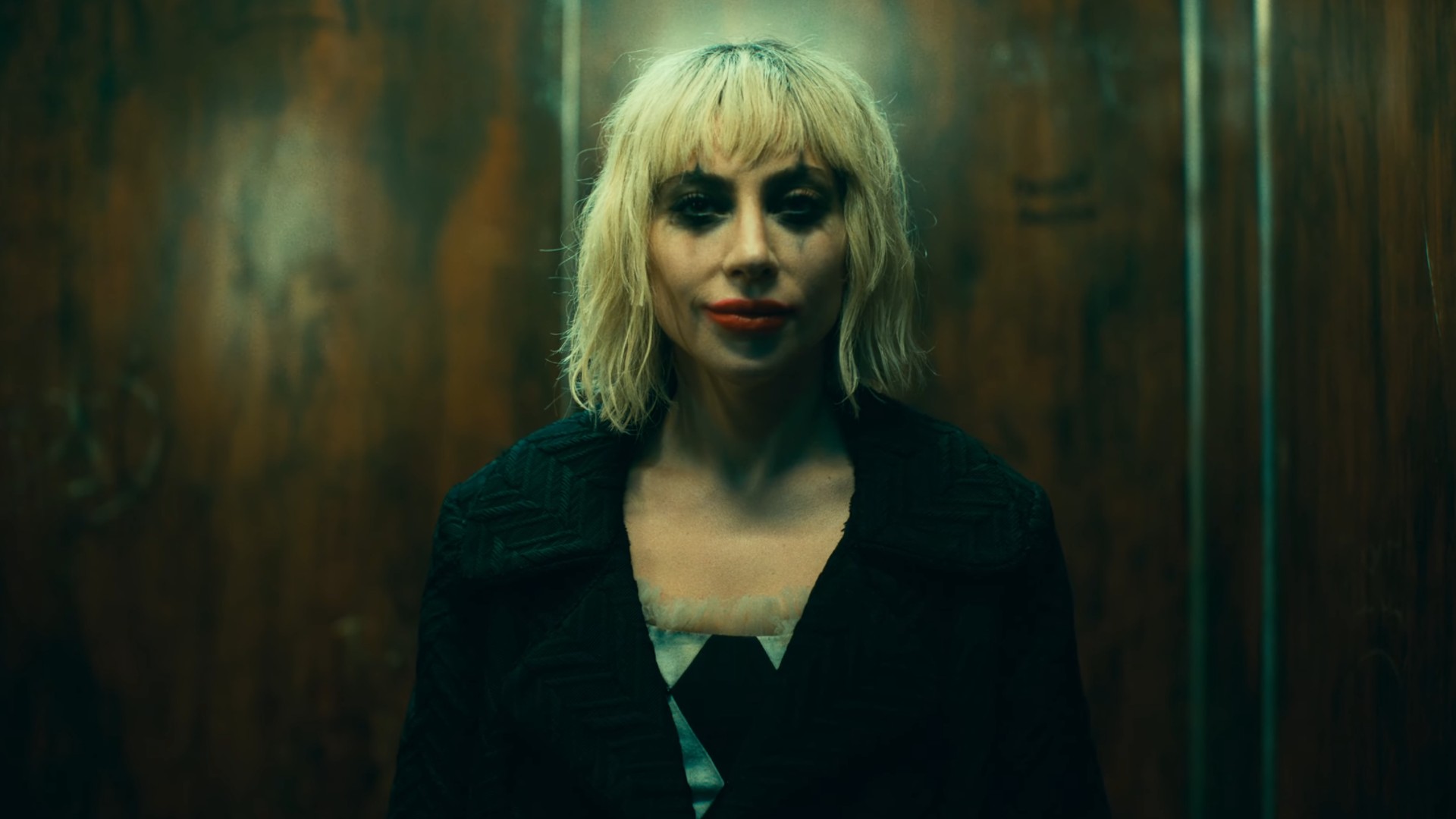
Joker: Folie à Deux has premiered at the Venice International Film Festival. Here's our review...
"Let’s give the people what they want," says Lady Gaga’s Harleen ‘Lee’ Quinzel (aka Harley Quinn) at a key juncture in Joker: Folie à Deux. It’s a perverse statement for a film that seems stubbornly committed to giving audiences quite the opposite.
The much-anticipated sequel to Todd Phillips’ Oscar-winning box-office champ is a bold departure from its lauded/loathed predecessor, but it’s also a far less effective vehicle for its tragi-comic subject and lead actor. Two years after his murder spree, Arthur Fleck (Joaquin Phoenix) is now committed to Arkham State Hospital’s brutal E-Ward, awaiting trial and a potential death sentence if peacocking DA Harvey Dent (Harry Lawtey) has his day in court.
In music-therapy class Arthur meets Lee and sparks soon fly – literally when his arsonist admirer tries to burn Arkham down as an act of love; later, she becomes Joker’s biggest cheerleader in court.
Beyond the inclusion of Lee – here stripped of the character’s usual hallmarks and reduced to a spectator for much of the film – Folie à Deux’s biggest swing is that it’s a jukebox musical, featuring '60s chart-toppers and Golden Age Hollywood hits. Arthur and Lee break into song with relentless regularity, and when there hasn’t been a spot of spontaneous warbling for five minutes, a fantasy dance sequence is typically moments away.
These stylized soundstage numbers are exquisitely shot – as is the rest of the film – by returning DoP Lawrence Sher. Gaga, likewise, gives them her all. But song and dance isn’t Phoenix’s forte and there isn’t enough razzle-dazzle to the choreography or staging to impress on a technical level.

Of the other musical crimes, reducing Hildur Guðnadóttir's sublime doomstrings score to second chair deserves a spell in Blackgate Penitentiary, particularly when it so perfectly rendered Arthur’s mental state in the first film.
Even worse, musical numbers are frequently deployed as the dramatic crescendo of a given scene. The upshot is that the pacing and momentum in otherwise dramatically compelling sequences – a tense interview with Steve Coogan’s needling TV host Paddy Meyers being an example – is derailed as Arthur changes gear to put his thoughts into song, with most tracks seemingly selected for their painfully on-the-nose lyrics. Rarely has a film been so senselessly devoted to sabotaging its rich set-ups with flat pay-offs.
Unlike 2019’s Joker, a knotty film with big ideas and profound empathy for its central figure, Folie à Deux feels smaller and more insular. Gone is the sense of Arthur’s explosive transformation mirroring a Gotham City at a tipping point. The film hardly even ventures beyond the claustrophobic walls of Arkham or the courthouse.
Instead, it’s focused on the Arthur/Joker dichotomy – who is really in control? And can Lee tip the balance? However, given how few true ‘Joker’ sequences feature, it’s clear where Phillips’ interests lie. Folie à Deux wants Arthur to reckon with the consequences of his (admittedly very criminal) actions and seems content for him to suffer without any of the first film’s devilishly transgressive catharsis.
The result is resoundingly downbeat to the point of feeling mean-spirited. There’s no question Folie à Deux is a film made with integrity and an uncompromising vision, but evidently they can’t all be hits.
Joker: Folie à Deux is released in US theaters and UK cinemas on October 4.







